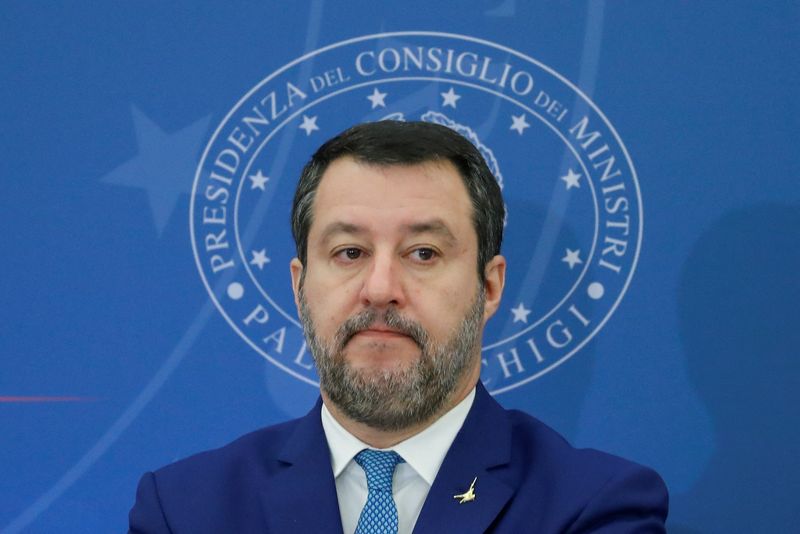Italian minister says country’s ban on ChatGPT is excessive
2023.04.02 09:48

© Reuters. FILE PHOTO: Matteo Salvini, Italian infrastructure minister and deputy PM, attends a news conference for the government’s first budget in Rome, Italy November 22, 2022. REUTERS/Remo Casilli
ROME (Reuters) – Italy’s deputy prime minister on Sunday criticised a decision by the government’s Data Protection Authority to temporarily ban chatbot ChatGPT, saying the block over privacy concerns seemed excessive.
Microsoft-backed OpenAI took ChatGPT offline in Italy on Friday after the national data agency raised concerns over possible privacy violations and for failing to verify that users were aged 13 or above, as it had requested.
The move by the agency, which is independent from the government, made Italy the first Western country to take action against a chatbot powered by artificial intelligence.
“I find the decision of the Privacy Watchdog that forced #ChatGPT to prevent access from Italy disproportionate,” Matteo Salvini, who is leader of the ruling coalition League party, wrote on Instagram.
Salvini, who also serves as transport minister, said the regulator’s move was “hypocritical” and that common sense was needed as “privacy issues concern practically all online services”.
Since its release last year, ChatGPT has set off a tech craze, prompting rivals to launch similar products and companies to integrate it or similar technologies into their apps and products.
OpenAI, which disabled ChatGPT for users in Italy on the back of the agency’s request, said on Friday it actively works to reduce the use of personal data in training its AI systems like ChatGPT.
“We look forward to working closely with (the Italian data agency) and educating them on how our systems are built and used,” it said.
The ban could harm national business and innovation, Salvini said, adding that he hoped for a rapid solution to be found and for the chatbot’s access to Italy to be restored.
“Every technological revolution brings great changes, risks and opportunities. It is right to control and regulate through an international cooperation between regulators and legislators, but it cannot be blocked,” he said.








